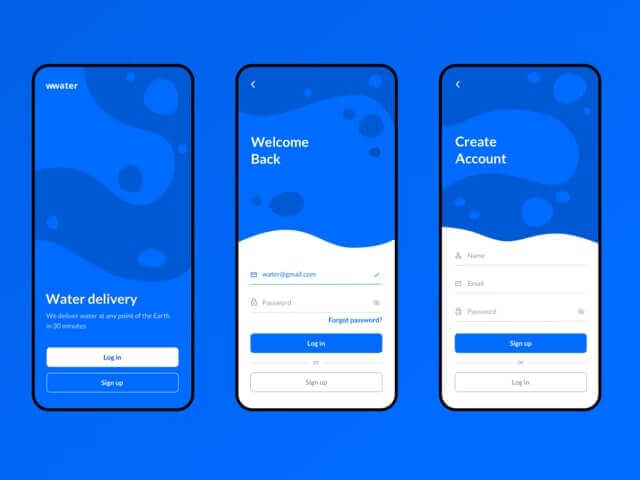Want to drive better engagement, less churn, and more growth in-app? Then you’ll want to consider a strategy that fuels mobile app adoption. After all, only when the user sees actual value in your app will it become an essential part of their routine. The challenge, however, with mobile app adoption is that it is often overlooked. Sure, you’ve got a stellar onboarding process in place, but what then? What happens when your users don’t know where to find features or simply aren’t achieving the goals they had hoped to achieve within your app? Do you even know who those users are? Those are the reasons why mobile adoption starts with identifying pain points.
In this post, we will look at the following:
- The difference between app onboarding and app adoption
- What makes app adoption so challenging
- How to identify user pain points
- How to boost mobile adoption with mobile feedback
The difference between app onboarding and app adoption
Many wonder if these two concepts are one and the same. The answer is no.
To clarify, onboarding is a one time process when your users download your app, whereas app adoption is an ongoing process whereby regular usage of the app is encouraged. To do this, app product owners must find ways to boost user engagement and help users achieve their goals within the app. In fact, it’s a big problem among app product owners…

Source: UserGuiding
According to research from Localytics, 73% of mobile users will either delete an app or become inactive on it within three months of downloading it.
Mobile app adoption is an ongoing, long-term retention process that involves helping customers make correct, regular use of your app and encouraging them to use more or newer features.
Stonly
So what makes successful app adoption so challenging?
There are a lot of moving parts one must consider when it comes to achieving successful app adoption. And a lot of it has to do with your knowledge of the user and what they’re thinking.
- Poor app onboarding
- Not knowing your users
- Users don’t know full extent of app capabilities
Let’s take a look at each of these individually.
Poor app onboarding
As we mentioned previously, onboarding is critical to the success of your app. In fact, creating a positive experience for first-time users can have a major impact on ongoing app usage. Onboarding is there to help educate the user about the functions and/or benefits of using the app, get them successfully registered, and of course, collect information that can be used to help personalise in-app content.
So what goes wrong? Oftentimes to the designer, the app may seem really intuitive and straightforward, however, many users will struggle to navigate the app intuitively, especially if the interface is an unfamiliar one and will tend to drop off (often within the first week!). Users need to be effectively onboarded and shown how to successfully use the app for their goals. Miss the mark on this one and you’ll likely suffer from low retention rates and/or low usage.
Learn more about the importance of onboarding and different types of app onboarding here.
Not knowing your users
Another challenge that app owners face is getting to know and understand the user. You can create a world-class, beautifully-designed mobile app, but if you don’t know anything about the user (i.e., their intentions, how they use the app, or which pain points they experience), you can still run into problems.
Relevance and convenience are the biggest drivers of app downloads, so it’s critical that you have insights from your users regarding their experience within the app. Mobile user feedback (which we will dive into shortly) is a great way of keeping a pulse on these users.

Users don’t know full extent of app capabilities
Lastly, there’s nothing more upsetting than having an app that is capable of such much and having a user base that only puts a fraction of the app to use. Whether it is for lack of understanding or perhaps poor navigation, sometimes your app’s features are lost on your users.
Luckily you can drive the discovery of these features with additional onboarding campaigns. Whether that’s an in-app nudge that guides the user to the (new or existing) feature, an email campaign which nudges the user and reminds them to look around some more. Or it could be implementing a contextual walk-through and showing them how to use a specific feature or section of the app.
If you read through these three challenges carefully, you might have realised that there’s a bit of a trend going on here. All of these challenges encompass one common theme: pain points.
Identifying your user’s pain points
So how do you pinpoint the struggles of your users in a way that gives you the insights you need without disturbing their in-app experience?
Many app product owners rely heavily on quantitative user data from all kinds of sources, but still need more qualitative data to better understand their users. This data helps them shape the roadmap and also create alignment between users and the app development team.

To identify the pain points or sources of friction, both types of data are ideal. Let’s take a look at an example.
Let’s say you have an ecommerce app. You noticed – thanks to your mobile app analytics tool – that your app is experiencing a high drop-off rate on a product overview page. Having identified this hurdle, you take your research one step further by analysing what is actually happening in that area. Are the users experiencing a bug? Are the images loading quickly? Is the filter working properly? These are the insights that your qualitative data can supply you with.
To gather this qualitative data, the most successful companies nowadays typically leverage a mobile feedback solution. Mobile feedback surveys enable app owners to collect important KPIs but also ask users open-ended questions. The feedback they receive then tells them why these users are leaving the app after having viewed just one section of the app very briefly.
All that’s left is to optimise the app accordingly and circle back to these users and ensure their retention.
Curious what makes users engage with certain products out of habit?
Be sure to check out Hooked: How to Build Habit-Forming Products
Boost mobile app adoption with mobile feedback
Mopinion offers a mobile feedback solution – Mopinion for Apps – that enables mobile app product owners to gather meaningful, qualitative insights in-app.
Curious what you can do with Mopinion? Let’s take a look:
Gather meaningful feedback from users
Mopinion for Apps enables you to create customised mobile feedback surveys that capture feedback from your native app users. Users can pick and choose from a variety of question types (i.e., multiple choice and open comments) and popular metrics (i.e., Net Promoter Score and Customer Satisfaction) as well as decide how to deploy the form in-app.
Leverage intelligent targeting
Target users with feedback surveys based on user events and in-app user behaviour using the Mopinion SDK. Decide where your mobile forms should pop up and start gathering truly meaningful insights.
Gather metadata alongside user feedback
Another unique feature is being able to couple your in-app feedback with rich metadata such as device type, app version, user info and more. This helps product owners get straight down to the issue.
Discover which issues arise with screen capturing
And to take it one step further, you can ask your users to pinpoint issues for you with mobile, native-specific screen capturing within the device (which is then submitted alongside the user’s feedback and metadata).
In-app notifications will help you with boost engagement
Mopinion users can also deploy feedback forms based on certain events within the app, enabling them to gather more relevant and timely feedback from app users.
Make mobile app adoption a priority
Having the right strategy is key to promoting mobile app adoption. And the truth of the matter is, that strategy starts with listening to the user and understanding what they need and what their pain points are. Do this, and you’ll be sure to experience increased retention and engagement in no time!
Ready to see Mopinion in action?
Want to learn more about Mopinion’s all-in-1 user feedback platform? Don’t be shy and take our software for a spin! Do you prefer it a bit more personal? Just book a demo. One of our feedback pro’s will guide you through the software and answer any questions you may have.







